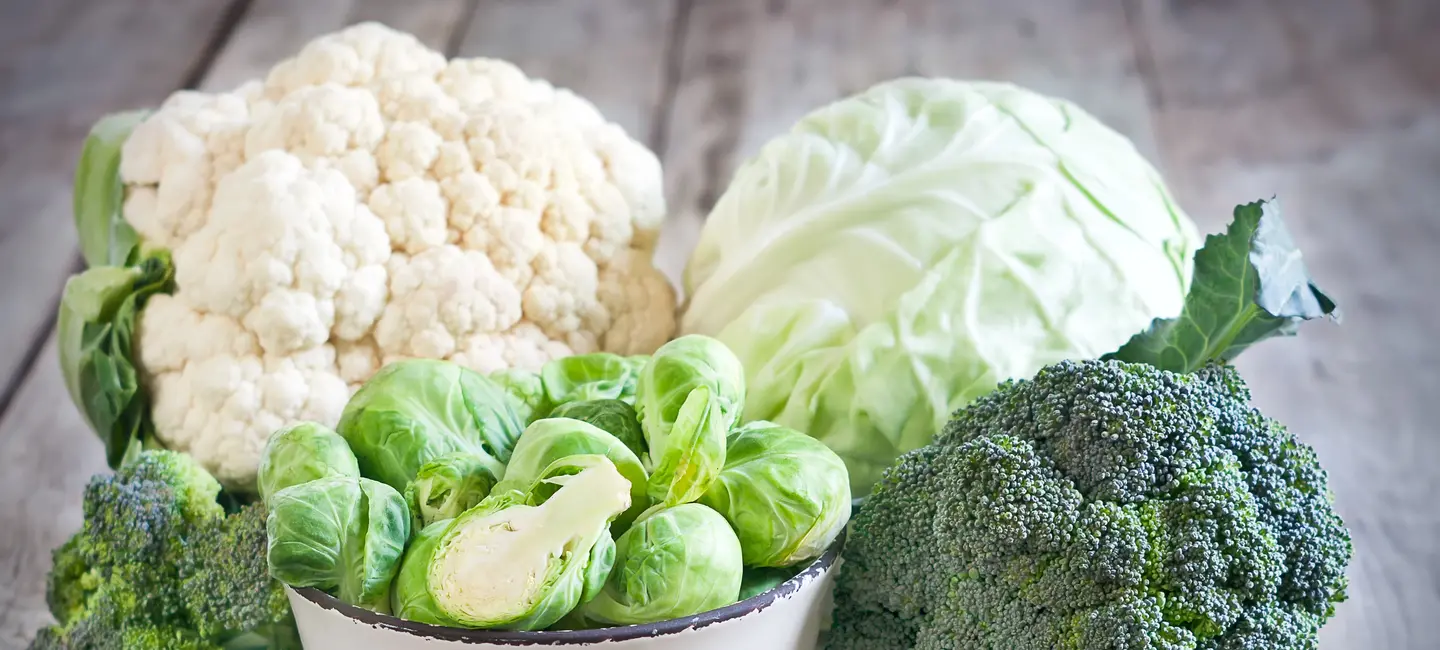
Sulforaphane is a chemical that is made when chewing cruciferous vegetables such as broccoli, cauliflower, and broccoli sprouts.
A chemical in these vegetables called glucoraphanin mixes with an enzyme in humans called myrosinase, which produces sulforaphane. Sulforaphane might increase the death of cancer cells and also reduce swelling.
People use sulforaphane for prostate cancer. It is also used for hay fever, autism, asthma, liver disease, sunburn, and many other conditions, but there is no good scientific evidence to support these other uses.
Don't confuse sulforaphane with broccoli or broccoli sprout. These are not the same.
Is It Effective?
NatMed Pro rates effectiveness based on scientific evidence according to the following scale: Effective, Likely Effective, Possibly Effective, Possibly Ineffective, Likely Ineffective, Ineffective, and Insufficient Evidence to Rate.
- Prostate cancer. Taking sulforaphane by mouth seems to delay increases in prostate specific antigen (PSA) levels in people who have had prostate cancer. Increased is a sign of prostate cancer returning.
- A digestive tract infection that can lead to ulcers (Helicobacter pylori or H. pylori). Taking sulforaphane by mouth doesn't seem to help clear H. pylori in people who are already taking standard H. pylori medication.
There is interest in using sulforaphane for a number of other purposes, but there isn't enough reliable information to say whether it might be helpful.
Is it Safe?
When taken by mouth: Sulforaphane is commonly consumed in foods. It is possibly safe when used as medicine. Sulforaphane and sulforaphane-rich broccoli extract products have been used safely for up to 6 months. It's usually well-tolerated. Side effects might include heartburn and stomach upset.
Special Precautions & Warnings:
Pregnancy and breast-feeding: Sulforaphane is commonly consumed in foods. But there isn't enough reliable information to know if sulforaphane is safe to use in larger amounts as medicine when pregnant or breast-feeding. Stay on the safe side and stick to food amounts.
Children: Sulforaphane is commonly consumed in foods. But there isn't enough reliable information to know if it is safe to use in larger amounts as medicine.
Seizure Disorder: Seizure has been rarely reported in people with a history of seizures after taking sulforaphane. It is not clear if sulforaphane increases the risk for seizure. Use with caution.
Medications changed by the liver (Cytochrome P450 1A2 (CYP1A2) substrates)
Interaction Rating=Moderate Be cautious with this combination.
Some medications are changed and broken down by the liver. Sulforaphane might change how quickly the liver breaks down these medications. This could change the effects and side effects of these medications.
Medications changed by the liver (Cytochrome P450 2E1 (CYP2E1) substrates)
Interaction Rating=Moderate Be cautious with this combination.
Some medications are changed and broken down by the liver. Sulforaphane might change how quickly the liver breaks down these medications. This could change the effects and side effects of these medications.
Medications changed by the liver (Cytochrome P450 3A4 (CYP3A4) substrates)
Interaction Rating=Moderate Be cautious with this combination.
Some medications are changed and broken down by the liver. Sulforaphane might change how quickly the liver breaks down these medications. This could change the effects and side effects of these medications.
There are no known interactions with herbs and supplements.
There are no known interactions with foods.
Sulforaphane is a chemical found in certain vegetables such as broccoli, broccoli sprout, and cauliflower.
As medicine, sulforaphane has most often been used by adults in broccoli sprout extract products and in broccoli compounds containing the chemical glucoraphanin. Speak with a healthcare provider to find out what type of product and dose might be best for a specific condition.
Broccoli Seed Extract, Broccoli Sprout Extract, Glucosinolate de Sulforaphane, SFN, Sulforafane, Sulforaphane Glucosinolate, Sulforofano, Sulphoraphane, 1-isothiocayanate-4-methyl-sulfonyl butane, 1-isothiocyanato-4-methylsulfinylbutane, 4-methylsulfinylbutyl isothiocyanate.
Information on this website is for informational use only and is not intended to replace professional medical advice, diagnosis, or treatment. While evidence-based, it is not guaranteed to be error-free and is not intended to meet any particular user’s needs or requirements or to cover all possible uses, safety concerns, interactions, outcomes, or adverse effects. Always check with your doctor or other medical professional before making healthcare decisions (including taking any medication) and do not delay or disregard seeking medical advice or treatment based on any information displayed on this website.
© TRC Healthcare 2024. All rights reserved. Use and/or distribution is permitted only pursuant to a valid license or other permission from TRC Healthcare.
